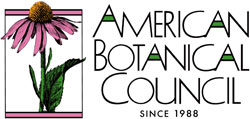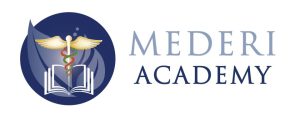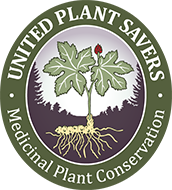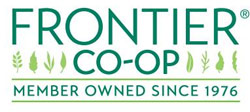Past Conference:
Presented by video streaming starting on March 27 & 28, 2020
The Conference was converted from an in-person event to a VIRTUAL format (video streaming) and although the conference is now over, you can purchase the video recordings, audio recordings and PDF book of lecture notes from this event.
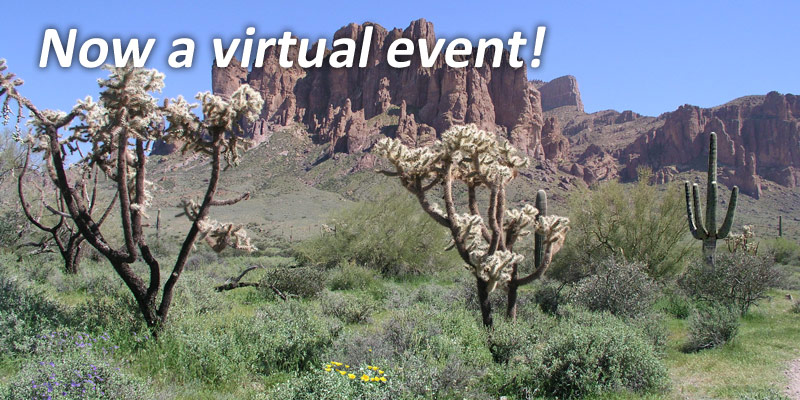
Past Conference offered online:
- Video streaming of all 25 – 30 lectures started on March 27 and could be viewed any time for 14 days for the same number of CE credits already approved. Attendees chose when to watch on their own schedules! Registration is now closed.
- The pre-conference intensive and panel discussion were presented by live video stream with questions from the audience. Recordings of these sessions are available in video and audio.
- Special lecture session on Targeting COVID-19 Utilizing Unitive Medicine – Botanical, Nutritional, Dietary and Lifestyle Considerations with Donald Yance, RH (AHG)
- Participants also received a set of audio downloads and the digital lecture notes book.
- Continuing Education: Applications approved for naturopathic physicians (CA, OR and AZ) and acupuncturists. See below for continuing education details.
- Registration: $395 Included all lectures listed below. Extra $85 fee for pre-conference intensive.
See speakers and topics below.
Registration is now closed. Video and audio recordings of this conference are available.

Pre-conference Intensive
Presented by live video stream on March 27, and offered on-demand afterward for those who cannot be online for the live event. Pre-registration required, and there is still space. Add it to your registration here or contact us to sign up.
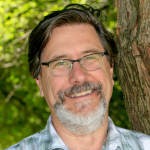
Pre-conference Intensive:
Understanding the Herb / Drug Interaction Continuum and Using Risk Assessment Tools Detailed description
Presenter: Glen Nagel, ND, RH (AHG)
Cost: $85
Time: Live video stream on Friday, March 27, 1–5:15 PM Arizona and Pacific Time (or on-demand afterwards)
CE: Approved for 4 pharmacy credits for NDs in Arizona (SCNM CE), California (CNDA) and Oregon (OBNM). Approved for 4 PDA for acupuncturists (NCCAOM and CA Board of Acupuncture). Full CE details here.
 Conference Summary:
Conference Summary:
Kicks off with a live stream of the pre-conference intensive, and includes these lectures and more:
- Understanding Addiction, Parts 1 & 2:
- Neurobiological and Cultural Underpinnings of Addiction
- Treating Addiction and Promoting Harm Reduction with Botanical Medicine
- Mitochondrial Support for Autoimmune and Stress-Related Chronic Illness
- Acute Viral Respiratory Infections: Prevention and Treatment
- Managing Bipolar Disorder with Natural Medicine
- Strategies for Acute Illness in Children: Avoiding Pharmaceuticals
- Panel: Neuroplasticity and the Management of PTSD and other Mental Health Conditions
Summary of speakers and topics

Kenneth Proefrock, ND, Katie Stage, ND and Mary Rondeau, ND
Panel Discussion: Neuroplasticity and the Management of PTSD and other Mental Health Conditions
Saturday, March 28, 10:00 AM – 11:30 AM (Arizona and Pacific Time)
This panel will be presented by live video stream and available later for those who cannot attend live.
Neuroscientists used to believe that the brain’s structure and function were essentially fixed throughout adulthood. Recent studies of the brain and nervous system illustrate a system adapting to every experience. The brain can be injured by traumatic emotional events, physical trauma and chronic high levels of stress, but it can also be healed by these same mechanisms of neuroplasticity. While some pharmaceuticals may be showing promise in this area, this panel explores botanicals and other naturopathic therapies for restoring balance.
Addiction Series Part A – Understanding Addiction: Neurobiological and Cultural Underpinnings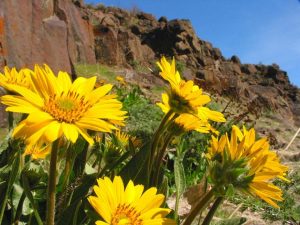
This workshop takes the participant on an overview of most things related to addiction and substance use disorders. We review how trauma makes us neurobiologically vulnerable to developing use disorders, as well as why a trauma informed approach is necessary within the world of addiction. We review the role of stigma in the treatment of addiction, and how it informs public health policy. The common substances of misuse are described (emphasis on opioids), and how finding and addressing the root causes of addiction in the neurobiology of trauma can offer a new approach to treatment.
Addiction Series Part B – Treating Addiction and Promoting Harm Reduction with Botanical Medicine and Some Pharmaceuticals
This workshop is most effective if you have participated in part A; it covers the core botanical medicines for the management of withdrawal effects, as well as cravings for substances of misuse. We examine real-life scenarios in working with people with substance use disorders in a homeless health care clinic and review the barriers and benefits to utilization of herb therapies for use disorders. This workshop also covers common allopathic medications for opioid and alcohol use disorders and discusses herbs that can be used in conjunction with these pharmaceuticals.
Humoral and Energetic Differentials for Gastrointestinal (GI) Herbs
Herbal medicines used for the digestive tract have, in the terminology of classical medicine, characteristic qualities of hot, cold, moistening, or drying. Giving GI herbs without matching their humoral or energetic qualities to the presenting symptoms of the patient can lead to patient discomfort, aggravated conditions, and therapeutic failures. We describe the signs and symptoms of the humors (hot, cold, etc) in the digestive tract and a materia medica for the GI tract, with formulation strategies to prevent adverse humoral effects.
Acute Viral Respiratory Infection: Prevention and Therapeutics
A presentation of nutritional and herbal considerations for epidemic respiratory viral infections, including lifestyle and dietary issues to support host resistance, botanical immune support, and specific therapeutics for the stages of fever and for dry cough.
Healing as a Spiritual Path
The individual called to be a healer enters into what is essentially a spiritual path. With any calling comes the right relationship to the other created beings; self-development in becoming of service to the whole; and the challenges of personal growth and self knowledge. The subtle spiritual and psychological skills involved with self-mastery and personal growth in the arena of healing may be equally as important for success as knowledge of materia medica, interview skills, or therapeutic strategies. We discuss the challenges of maintaining integrity on the spiritual path of the healer, with case studies from student-residents in a teaching clinic.
Mitochondrial Support for Autoimmune and Stress-Related Chronic Illness
Herbal formulas and protocols to increase mitochondrial function throughout the body, and their effect on autoimmune conditions and illness related to stress. Case studies illustrate this connection between mitochondrial function and chronic illness.
Demonstration: Wound and Infection Management using Herbs
Whether in the field, the clinic or home, there can often be situations where herbal care of wounds and wound infections is necessary or appropriate. In this class we discuss wound healing, wound color and consistency, local inflammation, chronic wounds (e.g. diabetic and vascular ulcers) identification of infection and antibiotic resistance. Sam Coffman shares his own herbal protocols (internal and topical), case studies and experience in the field and clinic in working with both chronic (non-healing) and acute wounds and infections.
Botanicals for Mitigating Environmental Toxicant Exposure
Environmental toxicants are known to disrupt the endocrine, immune and neurological system creating chronic illness and disease. We discuss the link between toxicants and chronic illness, describe how to avoid exposure to these chemicals and provide an in-depth treatment approach using botanical medicine to mitigate the toxic effects.
Food Addiction in Women: Botanical Treatment Strategies
Food addiction is very different than an eating disorder. It is common in women and yet can be difficult to recognize and address in patients. This presentation provides the latest research describing forms of food addition and helps the practitioner diagnose this emerging problem. It explains the link to neurotransmitters, hormones, gut microbiome, behaviors and lifestyle. In-depth treatment strategies are provided including botanicals, medications, nutrients, nutrition and lifestyle interventions.
Heath McAllister, ND, RH (AHG)
Botanical Treatment for Difficult Fungal Infections
A host of conditions are caused by fungal infections, from athlete’s foot and toenail fungus to vaginal yeast infections, valley fever (coccidioidomycosis), lung infections (histoplasmosis, and aspergillosis) and cryptococcal infections. These pose challenges to the clinician since there are relatively few antifungal medications, and those medicines can have serious side effects. Botanical formulas for fungal infections and biofilms may include Allium sativum, Azidirachta indica, Morinda citrifolia, Berberine spp, grapefruit seed extract, Isatis tinctorial and olive leaf, among others.
Mystical and Mysterious Artemisia
Begins with a survey of the various species of artemisia that have been used medicinally and spiritually, and explores the folklore and mystique surrounding this powerful genus. Continues with clinical information on the use of different artemisia species in the management of cancer, malaria, fever, liver disease, depression, digestive problems, muscle pain, memory loss and parasitic infections.
Pre-conference Intensive: Understanding the Herb / Drug Interaction Continuum and Using Risk Assessment Tools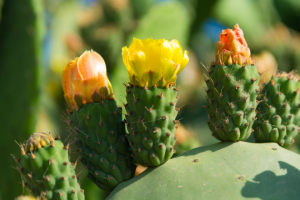
This intensive will be presented by live video stream on Friday, March 27 1:00 – 5:15 Pacific and Arizona Time. Recording available for those who can’t attend live. Extra $85 to attend.
This 4-hour pre-conference intensive covers common concerns and risk potential for drug/herb interactions for the naturopathic physician and clinical herbalist. The most common types of interactions and methods of drug detoxification are discussed along with a comprehensive five-point system for determining herb and drug interaction risk potential. He describes the top ten herbs for potential interaction and the top fifteen most commonly prescription drugs. Included is an overview of resources in this field for clinicians. ($85) Read more.
Field Applications in Botanical Medicine: Instant Tinctures with CO2 Extraction
Need that herb in a hurry? Will a two-week tincture take too long? We describe and demonstrate simple methods to make instant field extracts using a commonly available whipper and CO2 or N2O cartridges.
Memory as Medicine: Botanicals Affecting Cognition, Memory and Sense of Self
Learning and memory are two of the most magical capabilities of our mind. Learning is the biological process of acquiring new knowledge about the world, and memory is the process of retaining and reconstructing that knowledge over time. Most of our knowledge of the world and most of our skills are not innate but learned. Thus, we are who we are in large part because of what we have learned and what we remember and forget. In this discussion, we examine the molecular, cellular, and circuit mechanisms that underlie how memories are made, stored, retrieved, and lost and the myriad ways in which nutrition, exercise and botanical medicine are able to impact those processes.
Case Studies and Strategies in the Naturopathic Treatment of Pulmonary Conditions
This lecture presents a series of case studies gleaned from 24 years in a botanical medicine-based naturopathic family practice. We discuss both acute and chronic pulmonary conditions with clinical pearls and long-term clinical strategies. Cases include management of acute asthma and allergy through early childhood into adulthood, acute and chronic bronchitis, lung cancer (small cell as well as non-small cell), COPD, bronchiectasis and pulmonary fibrosis. Within this discussion will be specific instruction for in-office compounding and at-home compounding of nebulizer solutions as well as other botanical and nutritionally based strategies, and the occasional pharmaceutical-based intervention.
Strategies for Acute Illness in Children: Avoiding Pharmaceuticals
Expanding the herbalist’s tool box with nebulizers, eyedrops, nasal sprays, mouthwash/gargles and enemas, we discuss the most common presentations of pediatric patients and novel ways of addressing those conditions. We describe managing the most pressing needs of the patient and their families in acute illness, the natural course for the resolution of those conditions and ways to assist the child’s body in that resolution. Included are specific botanical medicine strategies using tinctures, powders, topical agents and hydrotherapy techniques. Conditions include management of EENT/respiratory infections, digestive upsets and skin infections. We discuss both long and short-term side effects of the pharmaceuticals often prescribed for these cases.
Brain Aging in the Menopausal Woman: Effects on Moods and Memory with Botanical Solutions
The aging brain in perimenopausal and postmenopausal woman comes with metabolic, neurotransmitter and vascular changes. All of these changes contribute to the unique role of hormones in moods and memory. Select botanicals have some very important impacts and implications in these changes and have a clinical role in prevention and management.
Treatment Considerations for Bipolar Disorder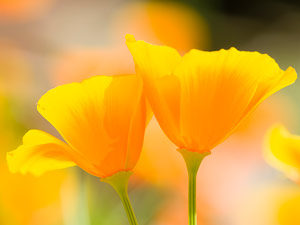
Clinical experience with using nutritional and botanical therapies for managing bipolar disorder is presented along with an overview of first-line pharmaceutical therapies for treatment. Side effect profiles of these medications are considered, with adjunct natural therapies to help offset side effects. Included in the discussion are the safety concerns with long-term use of medication and potential herb-drug interactions.
Assessing Nutritional Status in Children with Autism Spectrum Disorder
A look at gut, mitochondria and dietary factors that contribute to poor nutritional status in these children and how to address them with nutraceuticals, dietary interventions and botanical medicine. Also discusses the most common prescription pharmaceuticals and how to manage their side effects.
Grow Your Own Medicine Garden in the Southwest
This workshop emphasizes the medicinal and clinical value of growing our own medicines, both for ourselves and for clients and family. They are able to see the plants (and perhaps help with growing and harvesting), and the practitioner knows where their herbal medicines come from and how they are processed. We discuss the best herbs to grow in our region, tips and ideas about climate, soils, light, moisture, habitat. life cycle, and applications for harvest, garbling and processing, storage and delivery into medicinal remedies. All by video stream!
Yalda Shokoohinia, PharmD, PhD
The Side Effects of Apiaceaous Plants
In her work as a pharmacist, phytochemist and pharmacognosist, Yalda Shokoohinia has conducted extensive research on the plants in the parsley (Apiaceae) family regarding isolation of new compounds, biological effects and side effects. Since many of the Apiaceaous plants are used as food and medicine it is useful to be familiar with their potential side effects and overdoses.
John Slattery
Field Study in Bioregional Herbalism
Join bioregional herbalist, John Slattery, for a virtual walk through this diverse Sonoran desert landscape where multiple habitats converge, as we explore the various plants as possible medicines for COVID-19.
Upper GI Disorders: Esophagitis, GERD/heartburn, Gastritis and Peptic ulcer Disease
About 20% of the population is affected by at least one condition of the upper GI system. This session explores the etiologies, workup, and treatments for these common conditions. Pharmaceutical, botanical, and other treatments will be offered, as well as weaning strategies for commonly prescribed pharmaceuticals.
A Deeper Look into the Window of the Body: Understanding and Optimizing Oral Health
If eyes are the window to the soul, then the mouth is the window to the body. Oral conditions often go unnoticed and untreated, and when they do, these conditions can put one at risk for a variety of other health conditions such as cardiovascular, respiratory, and gastrointestinal diseases. In this session, we review the latest research on oral conditions and sequelae. We investigate botanical interventions, including optimal delivery systems, for a variety of oral conditions.
Herbal and Nutritional Therapies for Eye, Ear, Nose and Throat (EENT) Conditions
In this class we discuss simple but effective clinical protocols using diet, herbs and nutritional supplements for treating common ailments affecting the eyes (conjunctivitis, age-related macular degeneration, diabetic retinopathy), ears, (otitis media, tinnitus), nose (sinusitis, allergic rhinitis) and throat (sore throat, laryngitis, tonsillitis). Herbs can offer significant therapeutic benefits with little or no adverse effects to many people suffering from these frequently occurring EENT issues.
Herbal/Nutritional Treatment of Kidney Stones
Kidney stones are relatively common, their incidence is increasing, and they are extremely painful. If you have one, there is a 50% chance you will have another within 5 years. We examine the five types of kidney stones, how they can be prevented, what dietary issues, herbs and supplements can either help prevent urolithiasis/nephrolithiasis or relieve the acute pain associated with their passing. All of this and more: a survival guide to kidney stones!
Let Your Food be Your Medicine: Medicinal Uses of Common Foods
In many systems of traditional medicine (TCM, Ayurveda, Tibetan Medicine, Siddha, Unani Tibb) the use of foods for specific medicinal purposes is an integral part of diet therapy. This was also true for many practitioners in the early “nature cure” movement in the U.S. To this day we all know prune juice is a laxative, cranberries help inhibit UTI’s, chocolate elevates mood and ginger is useful for nausea and GI upset. What about all the other foods? We explore the use of common foods including celery, cabbage, tofu, cherries, green beans, black beans, kiwi fruit, potatoes, olive oil. watercress and many more for treating disease and improving our health.
Donald Yance, RH (AHG)
Targeting COVID-19 Utilizing Unitive Medicine – Botanical, Nutritional, Dietary and Lifestyle Considerations
Includes information on these aspects of the novel coronavirus:
- The dualistic role of the immune system and CoV
- The immune system, nervous system, and endocrine system connection
- Warning to those taking specific pharmaceuticals, namely NSAIDs, ACE inhibitors, and even PPIs
- Botanical Medicine and CoV – prevention, first-line treatment, and adapting for specific presenting symptoms/complications, age, secondary chronic disease, and constitutional makeup
- The importance of a fever and how to use diaphoretic herbs in conjunction
- Specific diet recommendations and nutrients for prevention and treatment
- Other modalities: sinus flush, bath therapy, chest rubs, and poultices, humming, chanting, laughter, etc.
Managing IgA Nephropathy and FSGS with Natural Medicine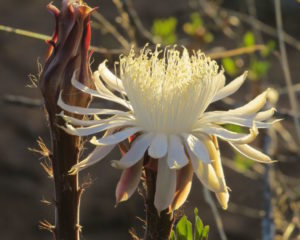
IgA nephropathy is the most common form of autoimmune kidney disease (glomerulonephritis) in the world. FSGS (focal segmental glomerulosclerosis) is also a leading cause of kidney failure in adults. This lecture presents a holistic approach to treating these conditions with numerous case studies from Eric Yarnell’s clinical experience. Herbs are emphasized along with other necessary interventions for long-term reversal of the condition and avoidance of dialysis and transplant.
Cancer Pain and Botanical Medicine
Herbal medicine can be very effective for reducing pain due to cancer. The clinical use and intriguing mechanisms for herbs such as Corydalis yanhusuo, Aconitum spp, Anemone/Pulsatilla, Hyoscyamus niger and cannabis are reviewed in depth. Safety and efficacy of these herbs in combination with common pain medications are discussed, along with clinical case examples to highlight how these herbs are used.
Testosterone and Botanical Medicine
The evidence for whether or not herbs can raise testosterone levels will be discussed in detail, including research on herbs such as Tribulus terrestris, Eurycoma longifolia, Lepidium meyenii, Panax ginseng, and Trigonella foenum-graecum. The problem of adulteration of herbal products with androgens is reviewed, and safety and clinical benefit of the use of herbs simultaneously with testosterone. Alternative solutions to helping men with hypogonadism are presented.

Lydia Bartholow, DNP, PMHNP
As a psychiatric mental health nurse practitioner (PMHNP) with a doctorate in nursing, Lydia Bartholow brings direct clinical experience to her presentations. She is associate medical and clinical director for behavioral health at the Blackburn Center of Central City Concern in Portland Oregon, a nonprofit agency serving single adults and families who are impacted by homelessness, poverty and addiction. She is also a medical herbalist using botanicals for treating addiction in her past and current clinical work. More about Lydia Bartholow
Presentations:
1. Addiction Series Part A) Understanding Addiction: Neurobiological and Cultural Underpinnings
2. Addiction Series Part B) Treating Addiction and Promoting Harm Reduction with Botanical Medicine and Some Pharmaceuticals
Paul Bergner
The Director of the North American Institute of Medical Herbalism in Portland, Oregon, Paul Bergner offers seminar training in clinical skills, medical herbalism, nutrition, and nature cure. He supervised a teaching clinic in Boulder, Colorado from 1996 until 2012, has edited the Medical Herbalism journal since 1989, and is the author of seven books on herbal medicine. More about Paul Bergner.
Presentations:
1. Humoral and Energetic Differentials for GI Herbs
2. Acute Viral Respiratory Infection: Prevention and Therapeutics
3. Healing as a Spiritual Path (Garden Lecture)
Sam Coffman
A former army special forces medic, Sam Coffman is the founder and director of The Human Path, where he teaches botanical medicine, western pathophysiology, physiology, integrative medicine, and austere and post-disaster medicine. He is also the co-founder of Herbal Medics, which brings medicine to local residents in remote areas. This organization has assisted with first aid and herbal first aid in post-disaster medical and botanical medicine clinics along the Texas coastline and in Houston during Hurricane Harvey. More about Sam Coffman.
Presentations:
1. (Not yet recorded–stay tuned!) Mitochondrial Support for Autoimmune and Stress-Related Chronic Illness
2. Wound and Infection Management using Herbs (Demonstration in the Garden)
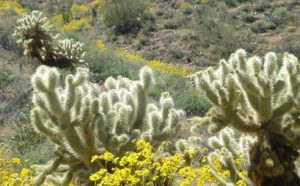
Marianne Marchese, ND
A naturopathic physician practicing in Phoenix, Marianne Marchese is a recognized expert in environmental medicine, women’s health, and integrative care. She is the author of the bestselling book 8 Weeks to Women’s Wellness. She has served on the State of Arizona Naturopathic Physicians Medical Board, National Association of Environmental Medicine and Council on Naturopathic Medical Education. She has been published in numerous magazines and journals (authoring the environmental medicine column in the Townsend Letter for the last nine years), and lectures throughout the U.S and Canada. More about Marianne Marchese.
Presentation:
1. Botanicals for Mitigating Environmental Toxicant Exposure
2. Food Addiction in Women: Botanical Treatment Strategies
Heath McAllister, ND, RH (AHG)
A California-licensed naturopathic physician, Heath McAllister graduated with honors from Southwest College of Naturopathic Medicine. He has served as faculty at several health-care institutions including Bastyr University in San Diego. In his practice, he combines the best of modern medicine with the most effective alternative therapies in order to offer a customized approach to each person’s health challenges specifically tailored to their individual needs. More about Heath McAllister.
Presentations:
1. Botanical Treatment for Difficult Fungal Infections
2. Mystical and Mysterious Artemisia
Glen Nagel, ND, RH (AHG)
Glen Nagel is an expert in botanical therapies in the field of naturopathic medicine. “My personal goal has always been to be the most versatile and well-rounded, botanically focused naturopathic doctor that I can be. I strive to develop an understanding of herbs from the seed to the clinical prescribing of botanical medicines. I have a deep love and respect for the healing herbs and strive to teach others about them.” More about Glen Nagel.
Presentations:
1. Pre-Conference Intensive: Understanding the Herb / Drug Interaction Continuum and Using Risk Assessment Tools (Live Stream 1:00 – 5:15 PM Arizona and Pacific Time or on-demand for those who cannot attend live) $85)
2. Field Applications in Botanical Medicine: Instant Tinctures with CO2 Extraction
Kenneth Proefrock, ND
A naturopathic physician practicing in Sun City, Arizona, Kenneth Proefrock specializes in difficult-to-treat conditions in his clinic, Total Wellness. He is the vice-president of the North American Board of Naturopathic Examiners and chair of the biochemistry portion of the naturopathic physician’s licensing exam. More about Kenneth Proefrock.
Presentations:
1. Memory as Medicine: Botanicals that Affect Cognition, Memory and Sense of Self
2. Case studies and Strategies in the Naturopathic Treatment of Pulmonary Conditions
3. Strategies for Acute Illness in Children: Avoiding Pharmaceuticals
Andrea Purcell, ND
Andrea Purcell, is a Naturopathic Doctor with practices in both Phoenix, Arizona and Costa Mesa, California. She is the author of two books and has been in private practice for almost two decades. She has spearheaded the use of telemedicine and believes that every woman has the ability to take control of her health. By truly helping women get to the root cause of their health issues, Dr. Purcell’s approach focuses on the whole person. She takes an active mentoring role with each of her practice members and speaks at conferences and to organizations on health and wellness. More about Andrea Purcell.
Presentations:
1. Brain Aging in the Menopausal Woman: Effects on Mood and Memory with Botanical Solutions
Mary Rondeau, ND, RH (AHG)
A naturopathic physician and herbalist, Mary Rondeau is the co-founder of the Wholeness Center in Fort Collins, Colorado, one of the most innovative integrative mental health centers in the US. She is co-owner of Synergy Neurofeedback which aims to use objective lab finding (brain mapping) for medication and supplement recommendations for mental health disorders and noninvasive neurofeedback therapy as a unique treatment strategy. Her love for nutrition and food met with the formation of The Wholeness Chef, a nutrition-focused cooking program that can be found on YouTube. More about Mary Rondeau.
Presentations:
1. Treatment Considerations for Bipolar Disorder
2. Assessing Nutritional Status in Children with Autism Spectrum Disorder
JoAnn Sanchez, RH (AHG)
JoAnn Sanchez is the director of the herbalist training program at Southwest Institute of Healing Arts in Scottsdale (a 700-hour diploma program), for which she has recently published five textbook manuals. She teaches at the Southwest College of Naturopathic Medicine, where she also tends the medicine garden. More about JoAnn Sanchez.
Presentation still to be recorded:
1. Grow Your Own Medicine Garden in the Southwest
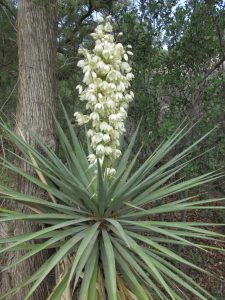
Yalda Shokoohinia, PharmD, PhD.
Currently the principal researcher at the new botanical lab at Southwest College of Naturopathic Medicine (SCNM), Yalda Shokoohinia is also Professor of Pharmaconosy and Phytochemistry at SCNM. Previously she was the chair of the Department of Pharmacognosy & Biotechnology at Kermanshah University of Medical Sciences in Kermanshah, Iran, and a visiting scholar at the University of Mississippi, NCNPR, Oxford, Mississippi. Her research areas are phytochemistry, natural product isolation, multidimensional chromatography, and analytical chemistry. More about Yalda Skokoohinia.
Presentation:
1. The Side Effects of Apiaceaous Plants
Katie Stage, ND
Katie Stage is a naturopathic physician and professional member of the American Herbalists Guild. She is Associate Professor and Director of the Therapeutics Division at the Southwest College of Naturopathic Medicine (SCNM) in Tempe, Arizona. Her practice is focused on optimizing the health of those with endocrine, gastrointestinal, and mental health conditions. She is also a member of the Ric Scalzo Botanical Research Institute. More about Katie Stage.
Presentations:
1. Upper GI Disorders: Esophagitis, GERD/heartburn, Gastritis and Peptic ulcer Disease
2. A Deeper Look into the Window of the Body: Understanding and Optimizing Oral Health
David Winston, RH (AHG)
David Winston is an herbalist and ethnobotanist with over 40 years of training and clinical experience in Cherokee, Chinese and Western/Eclectic herbal traditions. He has had a clinical practice for over 30 years and is a herbal consultant to physicians throughout the USA and Canada. President of Herbalist & Alchemist, Inc. an herbal manufacturing company, he is also founder/director of David Winston’s Center for Herbal Studies, which features his highly respected two-year Clinical Herbalist Training Program. More about David Winston can be located at Herbal Therapeutics and Herbal Studies.
Presentations:
1. Herbal and Nutritional Therapies for Eye, Ear, Nose and Throat (EENT) Conditions
2. Herbal/Nutritional Treatment of Kidney Stones
3. Let Your Food be Your Medicine: Medicinal Uses of Common Foods
Donald Yance, CN, RH (AHG)
Donnie Yance is a clinical master herbalist and certified nutritionist. He is the founder of the Mederi Centre for Natural Healing in Ashland, Oregon, the president and formulator of Natura Health Products, and founder and president of the Mederi Foundation. He lives in Ashland, Oregon. More about Donnie Yance
Presentations:
1. Targeting COVID-19 Utilizing Unitive Medicine – Botanical, Nutritional, Dietary and Lifestyle Considerations
Eric Yarnell, ND, RH (AHG)
Eric Yarnell is an associate professor in the department of botanical medicine at Bastyr University and chief medical officer at Northwest Naturopathic Urology. He is the author and co-author of numerous articles and books for practitioners including Clinical Botanical Medicine and Natural Approach to Gastroenterology. More about Eric Yarnell.
Presentations:
1. Managing IgA Nephropathy and FSGS with Natural Medicine
2. Cancer Pain and Botanical Medicine
3. Testosterone and Botanical Medicine

Registration Fees and Information
Registration is now closed. Video and audio recordings of this conference will be available soon at www.botanicalmedicine.org
Phone 541-482-3016
Cancellations: Before March 11, registration fees will be refunded minus $50 processing per registrant. No refunds can be given after 3/11/20. Refund requests should be sent in writing or by email to the conference office.
More instructions coming soon for accessing the video online.
Continuing Education for Conference Attendees:
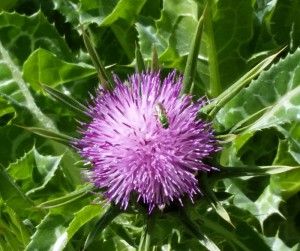
Applications approved for CME, PDA and CEUs. Number of credits depend on which lectures are attended. All video lectures count toward the totals approved.
Note: The totals below include attendance at the pre-conference intensive.
• Naturopathic Physicians
California ND: Application approved for 20.5 hours by CNDA, of which 13 can be pharmacy. Extra $35 fee for California ND CME.
Arizona ND: Application approved by SCNM CE Board for 20.5 possible general hours of which 13 can be pharmacy (or 11 pharm and 3 opioid addiction)..
Oregon ND: Application approved for 20.5 general hours of which 12.5 can be pharmacy and 1.5 ethics for selected lectures. Includes attendance at Friday pre-conference intensive.
More information on naturopathic continuing education.
• Acupuncturists: Application approved for 20.5 PDA (hours) by NCCAOM which includes attendance at Friday events. Application approved by California Board of Acupuncture, CEP Provider #1552, for 20.5 Category 1 CE.
More information on acupuncture continuing education.
• Nurses: Nursing CE will not be offered this year at this event, but will still be offered at Medicines from the Earth.
• A certificate of attendance is available to any participant who requests it.
Lecture Notes
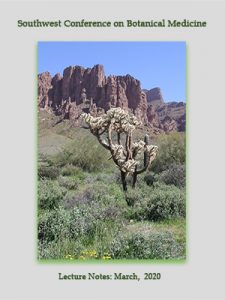 Lecture notes are compiled into an online book (proceedings) which is now available to all registrants at no cost. Registrants have been sent a link and password to access the teacher materials. Printed books will be available soon for $30.
Lecture notes are compiled into an online book (proceedings) which is now available to all registrants at no cost. Registrants have been sent a link and password to access the teacher materials. Printed books will be available soon for $30.
Many thanks to Frontier Co-op for their sponsorship of the printed and online lecture notes book for this conference.
Thank You!
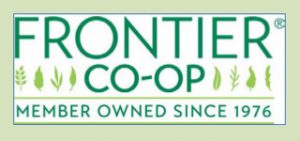
Thank you to Frontier Natural Foods Co-op for their sponsorship of the gathering and publication of the lecture notes. We thank Frontier for their continued annual support!



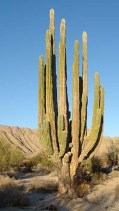 Conference Summary:
Conference Summary: